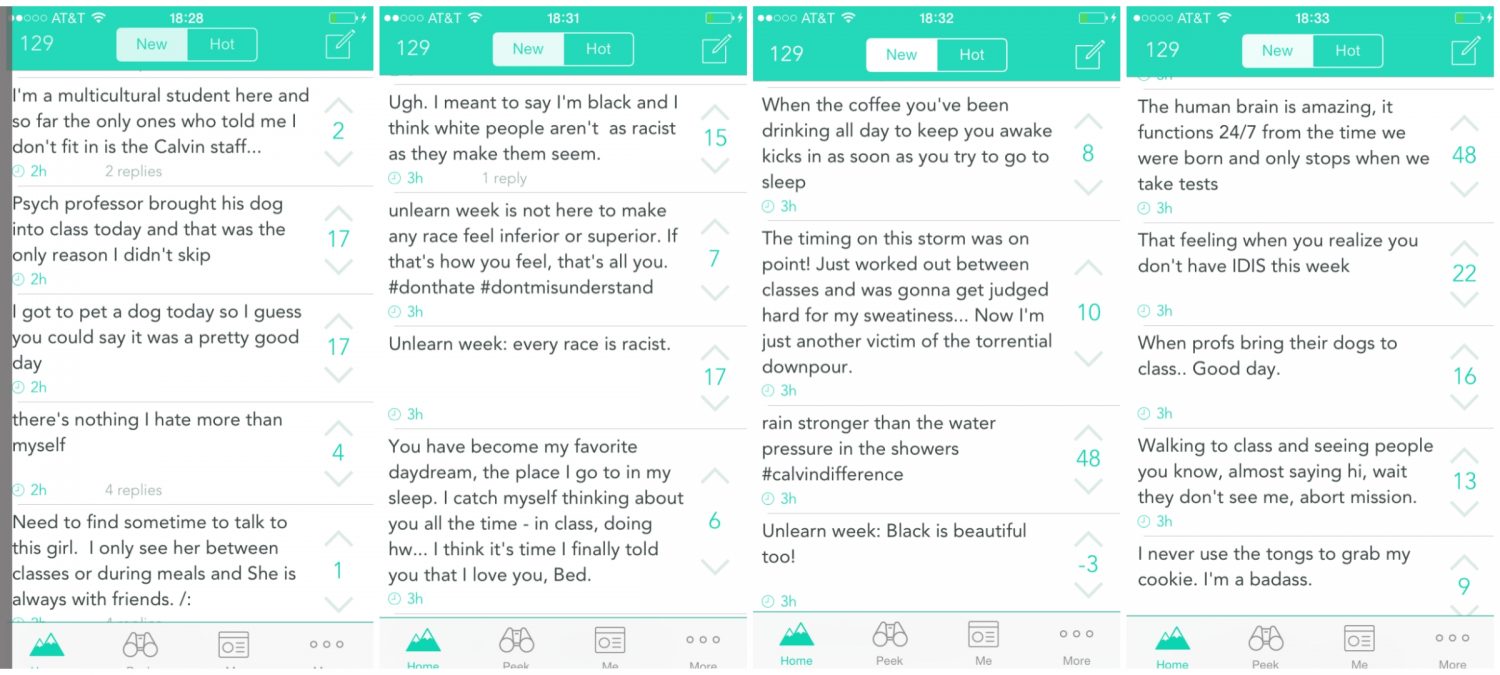This past summer, I happily spent my time working at an internship in New York City. The city exposed me to many new things, including long underground commutes, dirty sidewalks, people walking home at 5 a.m. after staying up all night and my personal favorite: Yik Yak.
For those of you who don’t know, Yik Yak is a social media application that allows users to post about people, places and things within a 10-mile radius. All posts are anonymous.
I loved this app from the moment I opened it. I got all the “yaks” from students at New York University. People posted things that were funny, clever and, at times, hilariously inappropriate. I read about people forgetting things on the subway, sitting awkwardly on blind dates and pranking their bosses. However, I also read about a lot of drugs, alcohol and sex.
You can imagine my surprise last month when I ventured another glance at the app and found that students from Calvin College had discovered it.
The yaks from Calvin students are relatively tame and feature self-deprecating humor and a lot of Calvin lingo. For the most part, Calvin students are wittier and more appropriate than their NYU counterparts. Whenever I need a good laugh, I just read the feed. From acorns falling on people as they walk down the path, to puns about squirrels, to the similarities of college and pre-school, I have been rather impressed by my fellow students’ sense of humor.
One problem I have noticed, however, is that sometimes we forget that even though this app is anonymous, the people reading the posts are not. The readers of these posts are the people who we sat on that blind date with or those bosses we pranked. They are our roommates, classmates and peers — real people with real feelings. While people may not know who the post came from, they can definitely tell when yaks are directed at a certain person or type of person.
We tend to say the things we really think and feel in the privacy of our own homes or friend groups when we feel like no one else can judge us for it. This privacy placed in the form of social media seems to invite people to take it to new levels. When you make a homophobic, racist, sexual, or derogatory comment, the pain it causes people is not diminished by your anonymity. In fact, it may be compounded. One anonymous person has the power to represent all people and their brutally honest thoughts and opinions — especially harmful ones.
The more we post about other people, genders or groups, the more people feel like a target. I don’t know what it is about these posts that make us want to share them. It may be the novelty of a form of expression that isn’t traced back to you. Posting hurtful comments without attaching your name is not only cruel, but it is cowardly.
I have read many yaks that seem to join our community through a shared belief or experience, but if we use this app to voice derogatory or inappropriate comments, then we may be better off without it. Please think before you yak.




